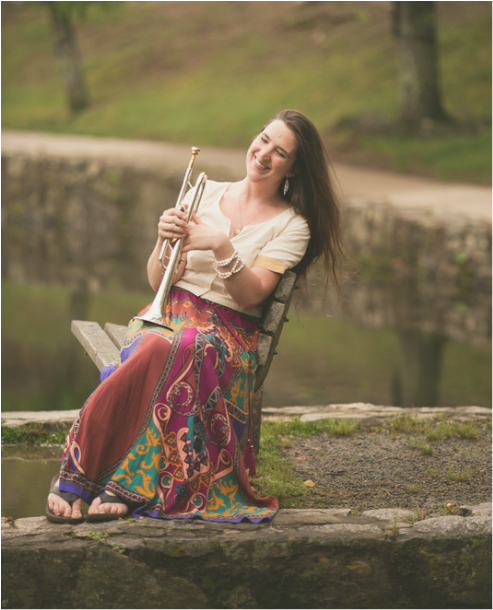
Monica Benson is freelance trumpet player and music educator in the Chicagoland area. Her enthusiasm and experience ranges from classical to contemporary, from rock and indie to pop music, and the occasional musical. Known for her professional work in the Chicago area, Monica has performed with multiple ensembles and bands from all over including the Brass Band of Battle Creek, The Illinois Brass Band, all-female 60s pop cover band The Bangers, and indie band The Generationals. During the summer months Monica can be found at The Arlington International Racecourse, playing the “Call To Post” as the official Arlington Bugler. Along with an active freelance career, Monica also teaches in the DePaul Community Music School’s Chicago Public Schools outreach program during the school year and the Sistema Ravinia program during the summer. Monica is currently working on her Master’s degree in Music at DePaul University.
I know an article about emailing can seem about as exciting as an article about office plants, but trust me when I say being a good communicator will help you get and keep gigs. Do I have your attention now? Whether you think you are or not, you are a business. Part of your business as a musician is being in contact with others who could potentially hire you. As much as musicians would like to think their lives are “all about the music,” wouldn’t it be nice if the music made you some money? As a student and freelance trumpet player in the Chicago area I have learned many things about corresponding with different groups and venues as both a musician and contractor. Below, I have compiled five things that have helped make my emails more effective and, in turn, helped me get and keep gigs. Happy emailing everyone!
1. Respond in a timely manner.
This is probably the easiest, and most fixable, thing you can do to increase your professionalism with regards to email. In this day and age, there is really no reason why it should take more than 24 hours to respond to an email. The old “so sorry my week got away from me” or “this email slipped by me on accident” is not such a valid excuse anymore. If you have never used an excuse like this to save face after a late email response, you are either: 1. Lying to yourself or 2. A magical being that exists only in folklore and on carefully curated Instagram pages. With email at our fingertips 24/7, it is easier than ever to keep up with electronic correspondence. Of course, we have all had weeks where email is the last thing on our minds (we are musicians after all). If it is not possible to respond with a valid or thoughtful response within the 24-hour time frame, send the recipient an email stating that you received their email and need to gather more information before properly answering their question. This way, the person knows you have at least received their email and are actively working on a response for them. However, it is important to consider that your timeliness could be the difference between getting the gig or the gig passing you by.
From a contractor’s perspective, musicians who are good communicators are hidden gems. At the racetrack where I work during the summer, I am often in charge of hiring other musicians. Communication with the people I hire is key. If someone is difficult to communicate with I will most likely not hire them again. The piece of mind that is created when you are working with someone who is professional and prompt is far more important than having the best player. Don’t get me wrong, the musicianship has to be there too, but I would rather hire a good communicator than a musical prodigy. Gigs can be stressful, and to be worried about whether or not your musicians will be on time or be able to find the gig just adds unnecessary anxiety.
2. Establish all pertinent information in the first correspondence.
Recently, I received an email that read like this: “Monica, are you interested and/or available to play the (name of concert) on (date) at (venue). I have 10 pieces.” Notice anything that’s missing? I can’t tell you how many emails like this I have received. Emails like this are incredibly frustrating for most musicians because of the lack of information. In the above email there is no information regarding time, rehearsals, pay, or personnel. This made it impossible for me to give a definitive yes or no to this gig right away. By not including all the information in the first email, an extended back and forth correspondence was created just to determine the details of the gig itself. Not to mention, after finally getting all the information deciding if I was available for the gig. Listing all the logistical information in the first email is key when hiring musicians for an engagement. If all the information is presented up front, it makes for a quicker response time from both parties and streamlines the hiring process.
3. Don’t be an askhole.
Although having all the information is a very important part of determining the success of a gig, there is a right and wrong way to gather information from a contractor. For example, say you are unclear about what the dress is for the gig. You thought it was concert black but have a nagging feeling it’s black pants/white shirt. Before shooting an email to the contractor, look back through previous correspondence. This question could have been addressed in a previous email. If the question is still unanswered, check the email recipients to see if you recognize a colleague’s name. It is possible to ask your colleague if they have any info that will help answer your question. If you still strike out on this front, compile all unanswered questions you have into one email and send it to the contractor. It is not ideal to ask a question about something that has already been discussed in a previous discussion, whether in person or via email. This makes you seem disorganized and unprofessional. Contractors are typically very busy people, so the less you need from them, the easier you make their job. The amount of info you will need to feel comfortable on a gig will vary from gig to gig. Some contractors send all the info right away, others will be like the above email. Be as proactive as possible about your role on the gig before including the contractor. You will be surprised how often we can answer our own questions. Some deductive reasoning and a little help from Google can go a long way.
4. Be concise.
As mentioned above, contractors and musicians are busy and usually working on multiple projects at a time (such is the nature of the job). Very few people have the time or desire to read an email novel. There is a way to be concise without being rude. If you feel like you need to include paragraphs of niceties to make your voice via email less curt, don’t. A simple, “Thanks! Please let me know if you need any more information from me.” is just as polite as a long-winded response. What most people don’t know is that people would rather read the shorter emails. When you think about the emails that take the longest to respond to, they are usually the ones that are on the longer side. It’s very easy to procrastinate on longer emails because it is more information to sift through. With gig information, try to include everything in the email or subject line instead of in an attachment. The fewer places a musician has to go to get the info they need the better. If everything is included in one email in one spot, it is much more efficient.
5. Be appreciative.
In regards to politeness via email, I end every email with a short “thank you” or “thanks.” This goes a long way. By including a thank you or a “please let me know if you need anything else from me” you seem flexible and easy to work with. Also, if someone is offering you a gig, thank them! They didn’t have to ask you for that gig, but they did, so it is perfectly acceptable to extend a word of thanks. Even if you are unable to take the gig that is offered to you thank them anyway. A simple “thank you for thinking of me, please keep me in mind for future opportunities” is the best way to help ensure future correspondence with that person. Affecting an attitude of gratitude will not only make you stand out, but it will also make your career much more enjoyable. We are very lucky that we get the opportunity to play music for a living, either full time or part time, and the people who help provide us with opportunities to make music deserve our thanks.

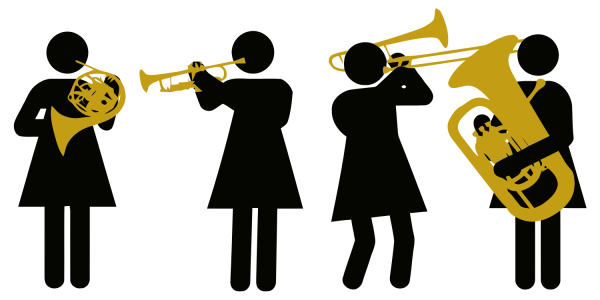
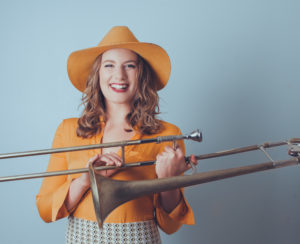

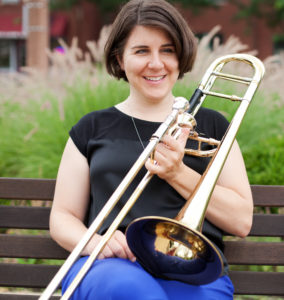

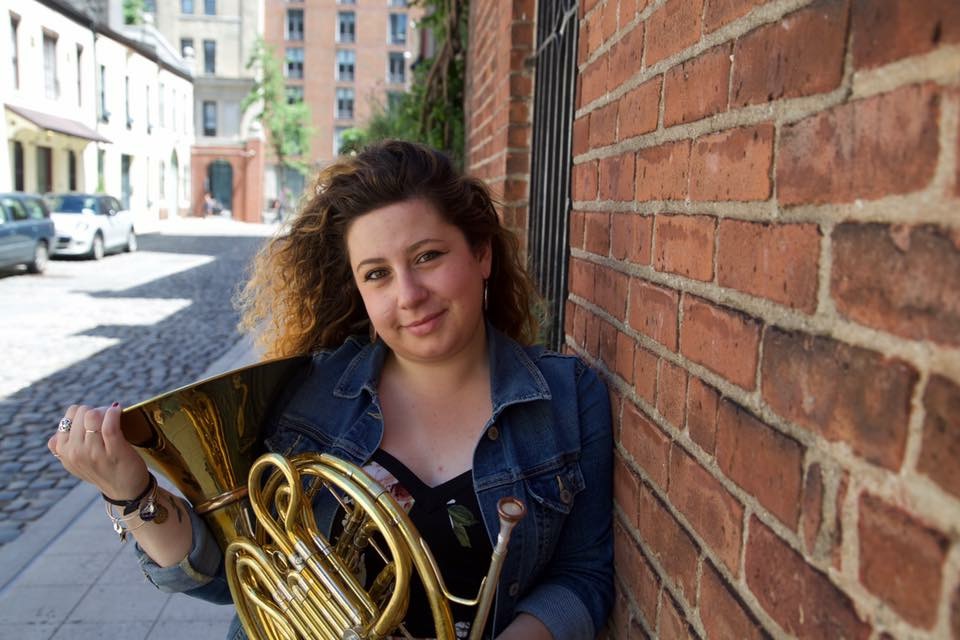 Diana Allan is a current NYC based freelancer. She recently graduated from Mannes School of Music in 2015 with her M.M. Studying with David Jolley. Previously she obtained her B.M. in Music Education K-12 from Mansfield University and studied with Rebecca Dodson- Webster. In the midst of gaining both degrees, she doesn’t stop there. Diana is currently working on her professional Studies degree at Mannes where she will graduate next spring 2019 with her third degree.
Diana Allan is a current NYC based freelancer. She recently graduated from Mannes School of Music in 2015 with her M.M. Studying with David Jolley. Previously she obtained her B.M. in Music Education K-12 from Mansfield University and studied with Rebecca Dodson- Webster. In the midst of gaining both degrees, she doesn’t stop there. Diana is currently working on her professional Studies degree at Mannes where she will graduate next spring 2019 with her third degree. Dr. Kate Umble Smucker is a trumpet player and music educator based in New York City. She currently plays with
Dr. Kate Umble Smucker is a trumpet player and music educator based in New York City. She currently plays with 
